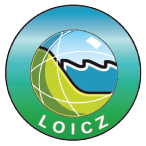2nd ACD Workshop
Potsdam, Germany, November 26-30, 2001
The second IASC/IPA-sponsored international ACD workshop was held in Potsdam, Germany, on November 26-30, 2001. Participants from Canada (2), Germany (8), Norway (3), Russia (6), Austria (2) and the United States (5) attended. The main objective of the workshop was to review the status of ACD according to phase 1 of the Science and Implementation Plan. During the first part of the workshop status reports of the ACD working groups and several papers dealing with different aspects of circum-arctic coastal dynamics were presented. During the second part the progress of the ACD working groups was discussed and, based on these discussions, the next steps were identified in the Steering Committee Meeting. The results are summarized in the following and detailed informed is given in the workshop report (Rachold, V., Brown, J. and Solomon, S. (eds.) 2002: Arctic Coastal Dynamics - Report of an International Workshop, Potsdam (Germany) 26-30 November 2001. Reports on Polar and Marine Research 413), which can be obtained at the ACD secretariat or downloaded as PDF.
Classification and mapping working group: The participants of the workshop agreed that at this stage of the project the highest priority is given to the assessment of sediment and organic carbon flux to the Arctic Ocean through coastal erosion. Accordingly, a coastal mapping template, which allows coastal scientists to record information about Arctic coasts to be used for a circum-arctic database of coastal retreat and sediment and organic carbon input, was developed. Regional experts will be responsible to define homogeneous coastal segments and apply the coastal mapping template following the instructions given in the guidelines for the ACD mapping and data template. The completed templates are to be sent to Volker Rachold and, after quality-check, will be imported into PANGAEA, which is a web-deliverable data system for environmental and geological sciences. For further GIS-based analyses the coastal data can be exported from the PANGAEA system. These analyses will include the determination of the length of the coastline for the individual coastal segments based on the GEBCO coastline, the quantification of volume of eroded material based on morphology, and as a third step the assessment of the sediment and organic carbon flux based on the mapping and data template.
Literature working group: Based on a bibliography containing ca. 500 references of Russian literature related to ACD, which was presented during the workshop, regional review articles summarizing the published information about coastal geomorphology, sediment and organic carbon yield are anticipated.
Environmental data working group: The Canadian Geological Survey (S. Solomon) has an open position for a PostDoc, who will be responsible for the extraction, compilation and analysis of ACD relevant environmental data.
Metadata working group: A circum-Arctic coastal Geographical Information System (GIS) to display the metadata information was presented during the workshop.
Workshop Participants:
-
Feliks Are*, St. Petersburg University, Russia
-
Jerry Brown*, International Permafrost Association, Woods Hole, USA
-
Michael Diepenbroek, Alfred Wegener Institute, Bremerhaven, Germany
-
Klaus Dittmers, Alfred Wegener Institute, Bremerhaven, Germany
-
Mikhail Grigoriev*, Permafrost Institute, Yakutsk, Russia
-
Ingo Harms, Hamburg University, Germany
-
Max Holmes, Marine Biological Laboratory, Woods Hole, USA
-
Hans-Wolfgang Hubberten*, Alfred Wegener Institute, Potsdam, Germany
-
Marco Lack, Potsdam University, Germany
-
Sathy Naidu, University of Alaska, Fairbanks, USA
-
Rune Odegard, Gjovik University College, Norway
-
Stanislav Ogorodov**, Moscow University, Russia
-
Chris Omelon, Department of Geography, McGill University, Montreal, Quebec, Canada
-
Volodya Ostroumov, Institute of Physicochemical and Biological Problems of Soil Science, Pushchino, Russia
-
Scott Peckham, INSTAAR. University of Colorado, Boulder, USA
-
Volker Rachold*, Alfred Wegener Institute, Potsdam and Bremerhaven, Germany
-
Aleksey I. Sharov, Institute of Digital Image Processing, Remote Sensing Group, JOANNEUM RESEARCH, Graz, Austria
-
Rainer Sieger, Alfred Wegener Institute, Bremerhaven, Germany
-
Orson Smith, University of Alaska, Anchorage, USA
-
Johan Ludvig Sollid*, Oslo University, Norway
-
Steve Solomon*, Canadian Geological Survey, Dartmouth, Canada
-
Ruediger Stein, Alfred Wegener Institute, Bremerhaven, Germany
-
Vladimir Stolbovoi, International Institute for Applied Systems Analysis, Laxenburg, Austria
-
Alexander Vasiliev, Earth Cryosphere Institute, Moscow, Russia
-
Evgeny Viazilov, Russian Research Institute of Hydrometeorological Information - World Data Center), Obninsk, Russia
-
Bjorn Wangensteen**, Oslo University, Norway
* Steering Committee Member, ** Young Investigator










